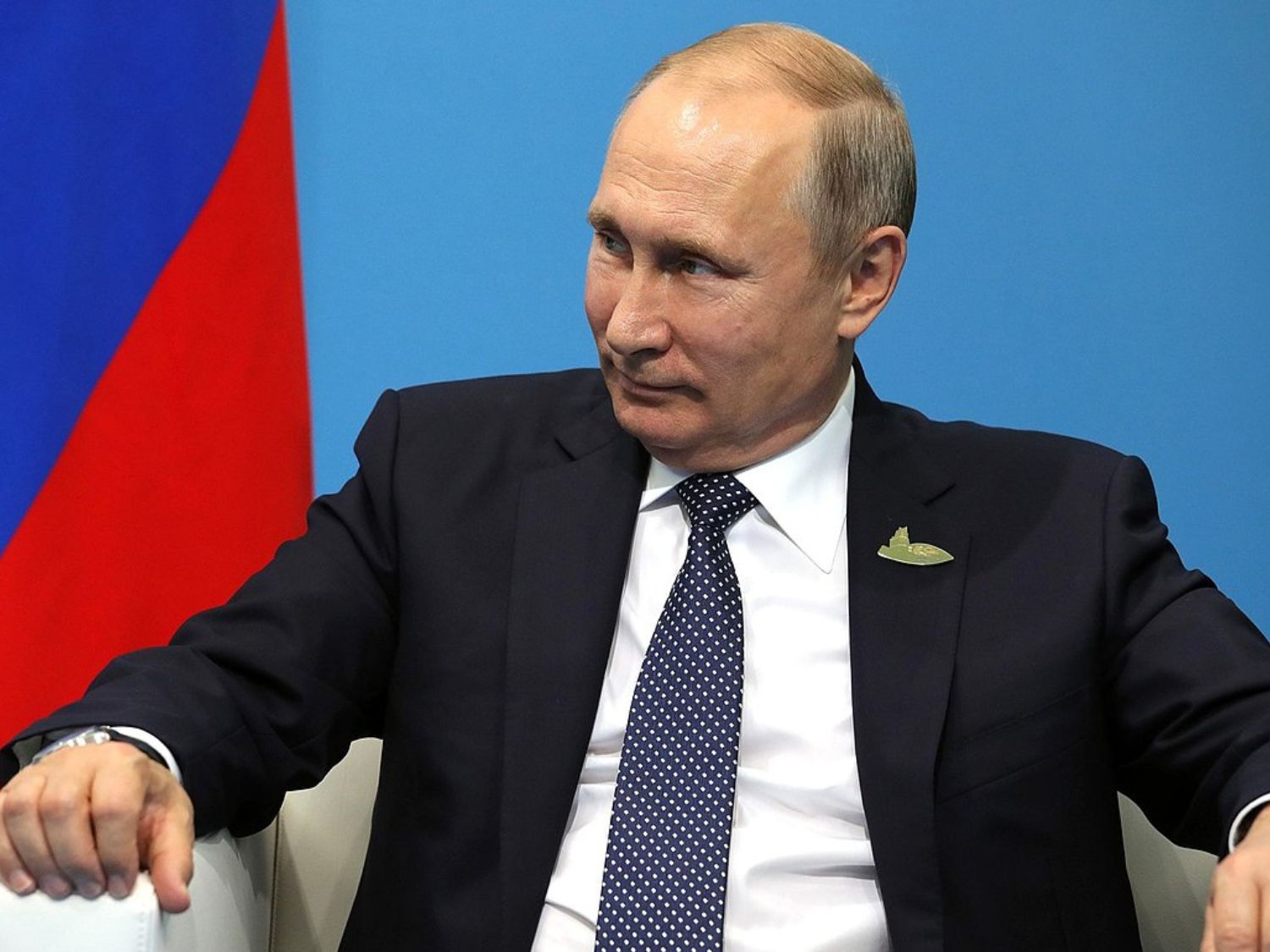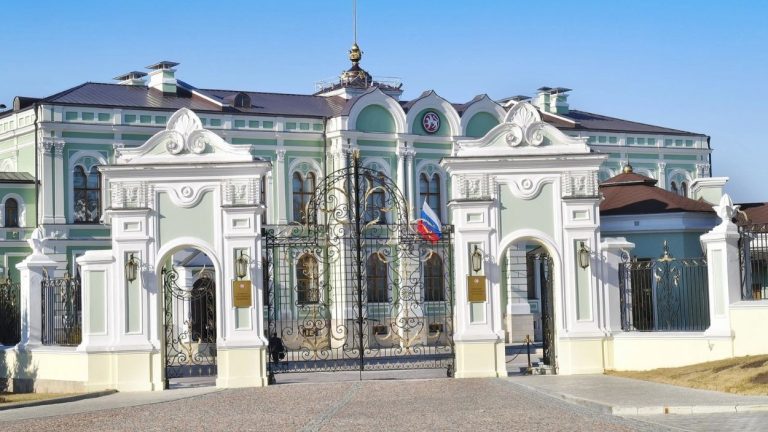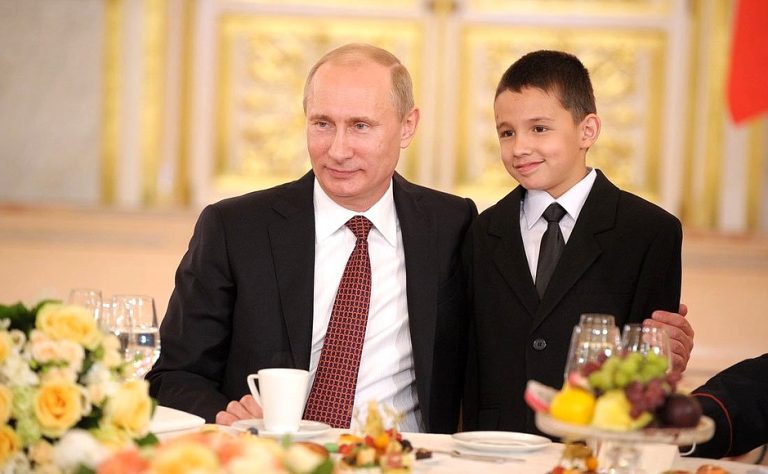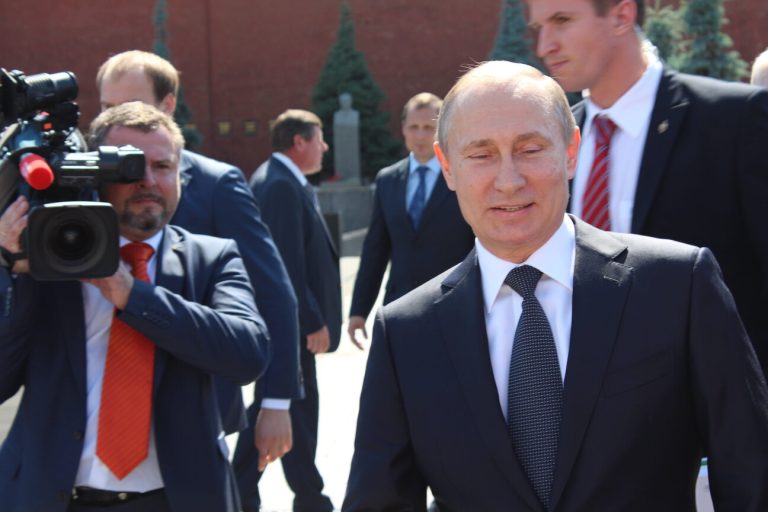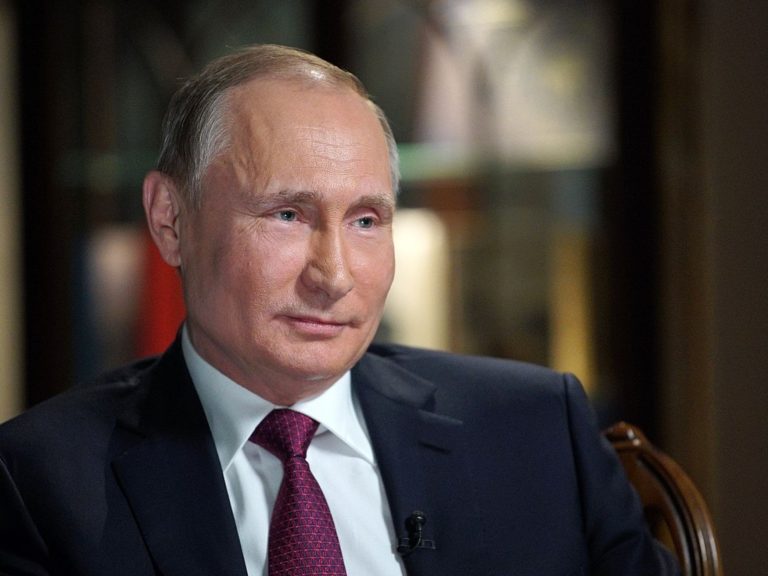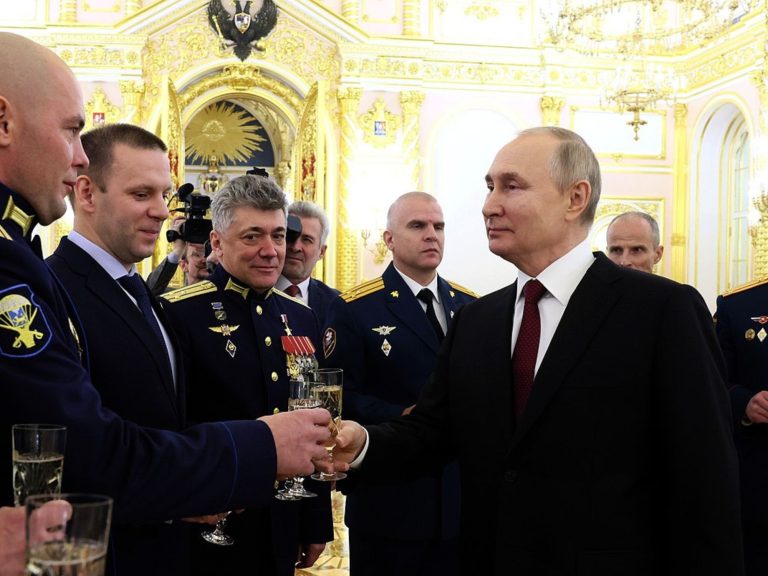The question of Russian President English proficiency got a lot of attention during the Trump summit in Alaska. People noticed times when the two leaders talked directly without translators. The Russian leader ended his speech with clear phrases like “And next time in Moscow” and “Thank you so much.”
Dmitry Peskov, the Kremlin spokesperson, said in 2021 that Putin has strong language skills. He even corrects translators sometimes. Former U.S. Ambassador to Russia John Sullivan also shared his thoughts. He said Putin’s English is good but not as good as his German.
This question is more than just curiosity. Communication abilities in international diplomacy play a big role in how talks go and information is shared. It’s interesting that Putin rarely speaks English in public but always uses translators in formal talks. Knowing a language well is a powerful tool in diplomacy.
The Mystery Behind Vladimir Putin’s Language Abilities
Putin’s use of English is shrouded in mystery. People have seen him give mixed signals about his language skills. It seems like he does this on purpose.
At a press event, a reporter asked Putin to stop harming civilians. Putin shrugged and pointed to his ear, saying he didn’t understand. This could mean he really didn’t get it or was just avoiding the question.
But Putin’s team tells a different story. Dmitry Peskov, the presidential spokesperson, said Putin understands English very well. This goes against what Putin shows in public.
The Trump phone call in May also shows Putin’s language skills. Peskov said Putin got the conversation in English before it was translated. This shows he can understand even when he uses a translator.
Putin’s language skills might be linked to his KGB days. Officers working abroad need to speak the local language. Putin worked in Dresden, East Germany, so he likely learned German.
This mystery helps Putin in diplomacy. It makes it hard for others to know if he’s listening in private talks. This gives him an edge in talks and meetings.
The mystery fits Putin’s image as a former spy. He only shares information that helps him, keeping everyone guessing about his abilities.
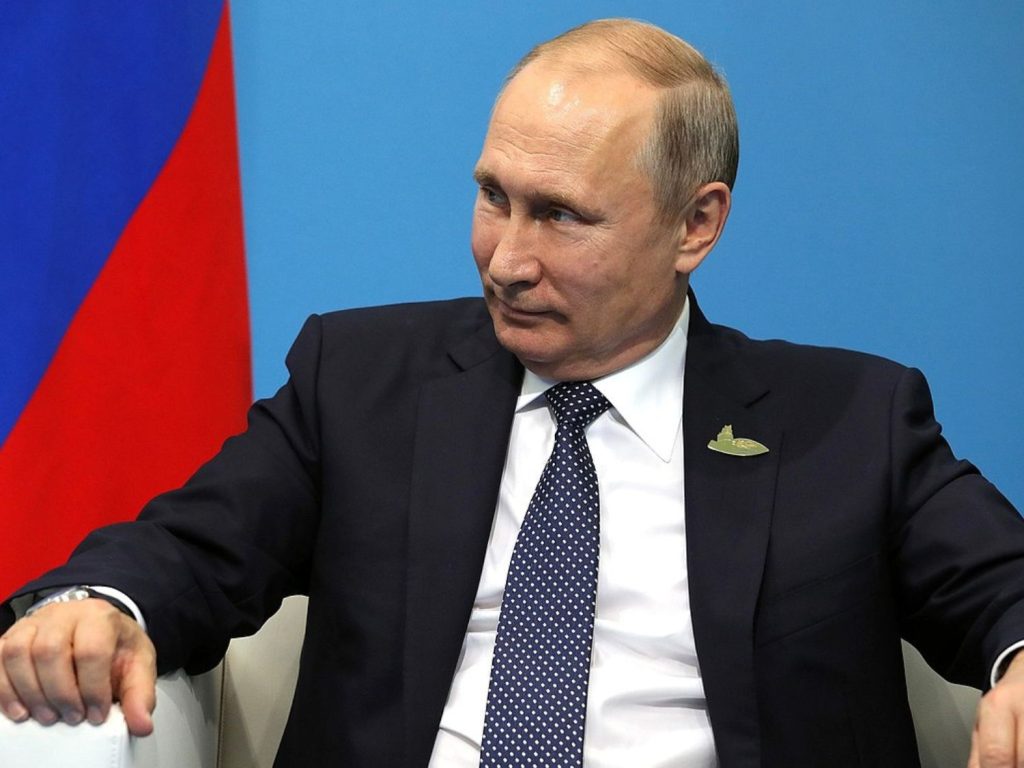
Does Putin Speak English? Here’s What We Know
Kremlin officials and Western diplomats say Putin can do more than just understand English. They’ve seen him use English in private talks. This shows he can speak English, not just listen.
Putin’s choice to speak English or not is key. He picks when to show off his English skills. This helps us understand how he talks to the world.
Confirming Putin’s English Language Capability
Dmitry Peskov, Putin’s spokesman, says Putin understands and sometimes corrects translators. This shows Putin knows English well. He can pick up on small mistakes in translation.
John Sullivan, a former U.S. Ambassador, also confirms Putin’s English skills. Sullivan says Putin can talk to American presidents in English. This makes their conversations clear to both sides.
Izvestia newspaper says Putin often speaks English when he’s not in a formal setting. At the Alaska summit, he even used English phrases like “And next time in Moscow” and “Thank you so much.” This shows he’s willing to use English when it’s useful.
Why Putin Rarely Speaks English in Public
Even though Putin can speak English, he usually uses interpreters in official meetings. Peskov says this is a strategic choice, not because Putin can’t speak English. It helps in diplomatic situations.
Using interpreters has many benefits. It gives Putin time to think before answering. It also helps avoid misunderstandings that could cause trouble.
Observed Understanding During Meetings
Diplomats and journalists have seen Putin understand English before the translation is finished. His reactions show he’s following along in real time. This means he can keep up with English conversations without help.
Former officials say Putin sometimes answers before the translator finishes. This shows he can understand complex discussions without needing an interpreter.
The Role of Body Language and Reactions
Experts look at Putin’s body language when he’s speaking English. His facial expressions and body language change before the Russian translation. This shows he’s understanding English directly.
Diplomats have seen Putin react to English before the translation. This shows he’s processing English on his own while following the rules of using interpreters for his answers.
Putin’s Language Education and Intelligence Background
Vladimir Putin learned many languages early on in Soviet intelligence. This was because speaking multiple languages was a must, not just a nice-to-have. His time in the KGB’s First Chief Directorate helped him get better at speaking foreign languages.
Canadian Senator Charles Adler said Putin is “a former KGB agent, conversant with several languages.” This shows how important languages were for his job.
The question of does Putin speak English is tied to his KGB training. He learned languages through classes and real-world use. Ambassador Sullivan said Putin can talk to the German chancellor in perfect German, but his English is not as strong.
KGB Foreign Intelligence Requirements
The KGB had strict language rules for its officers working abroad. They focused on languages that were important for the Cold War. English was key because it was the main language of the West.
Officers like Putin got special language training. They learned grammar, new words, and how to talk. The training was tough, but they had to be good at speaking English.
Mandatory Language Training for Soviet Agents
Soviet agents had to know foreign languages for their jobs. They learned by listening to real conversations and reading important documents. This helped them understand and speak like locals.
They were tested on their speaking and listening skills. They moved up levels based on how well they did in real-life situations. This made sure they could gather information and talk to people in other countries.
| Training Component | Methodology | Intelligence Application | Putin’s Development |
|---|---|---|---|
| English Grammar Foundation | Structured classroom instruction with Soviet linguistics professors | Reading classified Western documents and diplomatic correspondence | Academic proficiency established during university and KGB academy training |
| German Language Immersion | Extended field posting with daily operational use | Direct intelligence work requiring fluent communication with sources | Five years in Dresden created flawless conversational German capability |
| Conversational Practice | Role-playing exercises and native speaker interaction | Building rapport with foreign contacts and conducting interviews | Limited English practice compared to intensive German usage |
| Specialized Vocabulary | Study of political, military, and technical terminology | Understanding complex discussions in diplomatic and security contexts | Stronger comprehension than active speaking in English contexts |
The Dresden Years and German Fluency
Putin worked in Dresden, East Germany, from 1985 to 1990. This job made him very good at German. He used German every day for his work and personal life.
Many diplomats have talked to Putin in German without needing an interpreter. This shows he is very good at German, but not as good at English. It’s because he used German more in his job.
Working in Dresden for five years helped Putin learn German very well. He learned by talking to people, doing his job, and living in Germany. This was better than just learning in a classroom.
English Language Studies in the Soviet System
In Soviet schools, English was taught in a special way. Students learned English for school and for their future jobs. They focused on reading, grammar, and learning new words for politics and diplomacy.
For those going into intelligence, the English training was even more intense. Putin’s english speaking capability grew from his university studies and KGB training. He practiced listening to Western media and learned special words for his job.
But Putin never got to use English every day like he did with German. This is why his English is good but not as polished as his German. He got the same training in both languages, but used German more in his job.
Assessing Vladimir Putin’s English Proficiency Level
The question of whether can Putin communicate in English is complex. It goes beyond simple yes-or-no answers. It involves understanding different levels of language skills.
Experts look at comprehension and speaking, formal and informal language, and knowing versus using language.
Understanding Versus Speaking Fluently
The russian president english proficiency shows a common pattern. People often understand language better than they can speak it. Putin is no exception, understanding more than he speaks in formal situations.
Passive Comprehension Skills
Evidence shows does Putin understand English well. His press secretary, Dmitry Peskov, said Putin can correct translators during meetings. This shows Putin has a deep understanding of language.
But Putin is more careful when speaking English. In important talks, choosing the right words is critical. This is why he often uses interpreters, even though he knows English well.
Linguistic Experts’ Professional Assessments
Former U.S. Ambassador to Russia John Sullivan shared his thoughts on vladimir putin language skills. Sullivan said Putin’s English is better than he lets on, but not as good as his German. He also said Putin could have a conversation with President Trump in English.
This suggests Putin has good language skills. He can have direct conversations but might struggle with complex diplomatic talks. The opinions of Peskov and Sullivan agree on Putin’s language abilities.
Documented Moments of Putin Speaking English
There are many times Putin has spoken English, from official speeches to private talks. These moments are rare but very important. They show how well he can speak English.
Rare Public Addresses in English
Putin rarely speaks English in public. But when he does, it shows he wants to connect with English speakers. Experts look at these times to understand his English skills.
The 2003 British Parliament Visit
During his visit to Britain in 2003, Putin spoke some English to Parliament. This was a big gesture to his hosts. His words showed he could hold a simple conversation.
International Economic Forums
At economic summits, Putin sometimes uses English. He might say hello or thank you in English. This shows he uses English for special moments, not for long talks.
Unscripted English at International Summits
The Alaska summit was a big moment for Putin’s English skills. He ended his speech with English phrases like “And next time in Moscow.” These words showed he could speak without an interpreter.
Private talks between Trump and Putin were also interesting. They talked without interpreters several times. This included:
- Informal exchanges on the red carpet arrival
- Conversations in the presidential limousine “The Beast”
- Brief discussions during breaks in formal sessions
The talk in the limousine was very telling. It was just the two leaders and their security. This showed Putin could have real conversations in English.
Candid Moments and Off-Camera Exchanges
Putin sometimes speaks English when he thinks no one is watching. These moments are very telling. They show if he can speak English without planning.
Russia’s team at summits is very strategic. They have people who speak English well. This lets them listen to other teams’ private talks. The other teams can’t do the same because they don’t speak Russian.
At the Alaska summit, this strategy was very clear. The Russian team could understand the U.S. team’s talks. But the U.S. team couldn’t understand the Russian team. This made Putin’s English skills very important in the talks.
The Strategic Reasons Putin Relies on Interpreters
The Russian president’s choice to use translators in meetings shows his smart diplomatic strategy. Putin’s spokesman Dmitry Peskov said Putin talks through interpreters in official talks. This shows Putin’s careful planning in how he talks to foreign leaders, where every word matters a lot.
Using translators gives Russia an edge in talks. Peskov talked about the hard work of translating at the top level. He said it’s hard to make sure political speeches are understood across languages.
Diplomatic Advantages of Using Translators
Using interpreters helps Putin in tough talks. It turns what seems like a barrier into a strong point. This gives Putin flexibility that talking directly wouldn’t.
Interpreters give Putin time to think before answering. While his partner talks, Putin can plan his words carefully. This is very useful in tense talks where quick answers might not be best.
This pause lets Putin check with advisors or change his mind. This is very helpful in long talks with many exchanges.
Avoiding Misinterpretation in Critical Negotiations
Talking through interpreters helps avoid mistakes that could make things worse. Democratic commentator Julie Roginsky worried about what Trump and Putin talked about privately. Using official interpreters means there’s a record of what was said.
Questions about does Putin speak English are less important than why he doesn’t in official talks. Translators help avoid mistakes that could mess up messages or cause trouble.
Ensuring Precision in High-Stakes Communication
Putin sometimes corrects his interpreters, Peskov said. This shows Putin cares about how his words are understood by English speakers. Putin’s English skills let him check translations without making mistakes himself.
The vladimir putin language skills he has help him make sure his message is clear. Translators handle the technical side, while Putin checks the accuracy. This is very important in talks about important issues like treaties or military actions.
Projecting Russian Nationalism and Cultural Pride
Using Russian in official talks shows Putin’s pride in his country. By not using English, Putin shows Russia’s independence and confidence. This makes Russians proud and shows Putin’s strong political message.
This choice is part of Putin’s plan to show Russia as a strong, independent nation. Talking about russian president english proficiency misses this important point. Putin’s choice of language shows Russia is an equal partner, not a follower.
| Strategic Advantage | Tactical Benefit | Diplomatic Impact |
|---|---|---|
| Extra Processing Time | 30-45 seconds per exchange to formulate responses | Reduces impulsive reactions during contentious discussions |
| Translation Quality Control | Monitor accuracy while avoiding personal errors | Ensures precise messaging on sensitive topics |
| Cultural Assertion | Reinforces Russian linguistic sovereignty | Projects confidence and resists Western hegemony |
| Official Documentation | Creates formal records of exchanges | Provides accountability and reference for both parties |
Putin’s Language Skills Compared to Other World Leaders
Heads of state around the world speak many languages, from one to five or more. Vladimir Putin’s language skills are in the middle. He speaks fluent German and some English, which is better than some leaders but not as good as others.
Ambassador Sullivan said Putin can talk to the German chancellor in perfect German. This shows he is really good at speaking multiple languages. Russian Foreign Minister Sergey Lavrov and presidential adviser Yury Ushakov also speak English well. This helps them in talks.
But, American officials Marco Rubio and Steve Witkoff don’t speak Russian. This makes communication between them and Putin not even.
Looking at how leaders use language shows interesting patterns. The question of does putin speak english gets more interesting when we compare him to others.
Language Abilities of Previous Russian Leaders
Soviet and Russian leaders have had different ways of learning languages. Some learned through exile or diplomatic jobs. After the Soviet Union fell, there was a push for more Western interaction and economic ties.
Does Putin understand English like his predecessors? Each leader had their own focus, which affected their language skills.
Gorbachev and Yeltsin’s Approach to English
Mikhail Gorbachev mostly used interpreters, even with lots of diplomatic experience. He focused on policy changes more than speaking English. Boris Yeltsin also used translators, following the usual Russian way of communicating.
Both leaders knew some English phrases but didn’t talk much without an interpreter. This was because of the Soviet way of valuing exactness over speaking skills.
Multilingual Contemporary Heads of State
Today, leaders speak many languages, depending on their education, country size, and diplomatic style. Smaller European countries often speak three to four languages. Anglophone leaders mostly speak English, as it’s the global language.
The question of can putin communicate in english makes more sense when we see how others do it.
European Leaders and English Proficiency
European leaders often speak many languages, more than Putin. German Chancellor Olaf Scholz speaks English well, like his native German. French President Emmanuel Macron also speaks English, but prefers French for national reasons.
Dutch Prime Minister Mark Rutte spoke four languages, and Luxembourg’s leaders spoke five. This shows their education focuses on learning languages early on.
Asian Leaders’ Language Strategies
Asian leaders have different language skills, based on their history and education. Singapore’s Prime Minister Lee Hsien Loong speaks English, Mandarin, and Malay. Japan’s leaders often use interpreters, even though many Japanese learn English in school.
Chinese President Xi Jinping understands English but uses interpreters for clear communication. Like Putin, he values accuracy over showing off his language skills.
| Leader | Languages Spoken | English Proficiency | Interpreter Usage |
|---|---|---|---|
| Vladimir Putin | Russian, German, functional English | Moderate comprehension | Regular use |
| Emmanuel Macron | French, English, some German | Fluent speaker | Selective use |
| Xi Jinping | Mandarin, understands English | Passive comprehension | Consistent use |
| Olaf Scholz | German, English | Fluent speaker | Minimal use |
Conclusion
It’s clear that Putin can speak English. His Press Secretary, Dmitry Peskov, has said Putin speaks English well. He even corrects translators during meetings.
Ambassador John Sullivan agrees. He says Putin’s English is “much better than he lets on.” It’s good enough for talking directly with President Trump.
At the Alaska summit, Putin showed off his English. He used phrases like “And next time in Moscow” and “Thank you so much” without help. His listening skills are impressive, as he understands conversations before getting them translated.
The real question is not if Putin can speak English. It’s about when he chooses to use it. His KGB training included learning languages, but German is stronger after his time in Dresden.
Putin often uses interpreters in formal talks. This helps him in many ways. It gives him time to think, ensures accuracy in important talks, and shows Russian culture.
Putin sees language as a tool for diplomacy. He only shows his English skills when it helps him. This careful approach is part of his broader strategy in international relations.
FAQ
Does Putin Speak English?
Yes, Vladimir Putin can speak English. Kremlin spokesman Dmitry Peskov said Putin understands English well. He even corrects translators sometimes.
Former U.S. diplomats agree. They say Putin can talk directly with English-speaking leaders. But his German is more fluent.
Putin learned English during his KGB days. This training helped him understand and speak English.
What is Vladimir Putin’s English Proficiency Level?
Putin’s English is good but not perfect. He can understand and even correct translators. But speaking English is harder for him.
Diplomats say Putin’s English is good for simple talks. But it’s not great for complex diplomatic talks. He understands more than he can say.
Where Did Putin Learn English?
Putin learned English in school and at the KGB. The KGB taught him to speak languages for work. English was a key language during the Cold War.
Putin practiced his English a lot. But his German is even better. He learned German in Dresden, East Germany.
Does Putin Understand English Without Translation Assistance?
Yes, Putin gets English without help. His team says he understands English before it’s translated. He even corrects translators.
This skill helps Putin in talks. He can follow what others are saying in English. This gives him an edge in negotiations.
What Languages Does Vladimir Putin Speak?
Putin speaks Russian, German, and English. His German is very good. He learned it in Dresden, East Germany.
Diplomats say Putin’s German is perfect. His English is good but not as good as his German. He’s more versatile than some leaders but not as many as European ones.
Does Putin’s English Speaking Capability Compare to Other World Leaders?
Putin’s language skills are average among world leaders. European leaders often speak more languages. Anglophone leaders usually stick to English.
Putin’s English and German skills put him in the middle. He’s not as monolingual as some leaders but not as multilingual as others.
